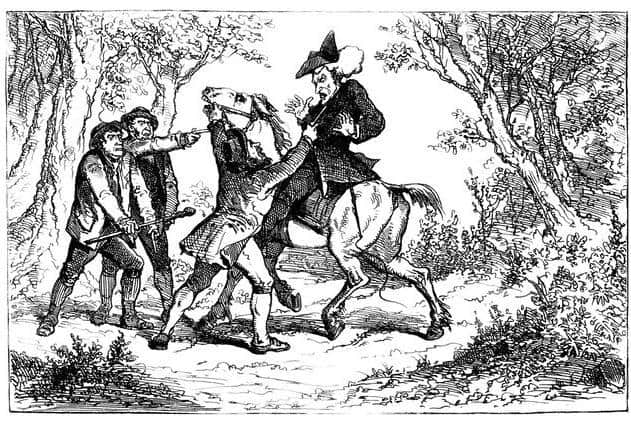Throwing snowballs and drunken horse riding - How Yorkshire ancestors would get in trouble with the law
Throwing snowballs, stealing growing flowers, rescuing a prisoner, sleeping in ovens, cycling without lights, chucking a woman in the canal, using fake half pint measures, obscene language and robbing gardens were just some of the many curious charges people were accused of in Sheffield during the 19th and early 20th centuries.
They were all included in Sheffield City Archives’ genealogical index, which was created to help people trace their ancestors.
Advertisement
Hide AdAdvertisement
Hide AdThere are about 250,000 names in the index taken from a wide range of records such as a list of paupers in 1808, the South Yorkshire Asylum at Wadsley in the 1880s and court prison lists up to the 1920s including defendants of the Sheffield Gang Wars which gave the city the nickname ‘Little Chicago’ at the time.


Many of the odd offences were recorded on the Magistrates Court Register, which deals with less serious crimes, and police charge books.
Peter Evans, archivist at Sheffield City Archives, said: “It’s a fascinating index, especially magistrates and police records from the Victorian period.
“The index also reveals sad tales of some of our ancestors’ difficult lives – ending up in the workhouse or asylum through falling on hard times or experiencing mental health issues.
Advertisement
Hide AdAdvertisement
Hide Ad“Most of the index was put together by volunteers who index our archives in their spare time.”
What were their ‘crimes’?
Excessive alcohol drinking was commonplace in the 1800s so it is unsurprising that some of the most common crimes in the archive involved intoxication, including being drunk and disorderly in the Town Hall and riding horses drunk.
Stealing was also common but some stolen items were not the valuables normally expected to be prized by criminals. Ancestors were accused of stealing things such as diaries, bones, billiard balls, Christmas cards, growing gooseberries and other plants, 31 railway tickets, handkerchiefs as well as various animals including ponies, pigeons, rabbits, ducks and guinea pigs.
One of the most gruesome cases in the collection was that of George Brookfield, 10, who was charged with “stealing a calf’s heart” in 1896.
Advertisement
Hide AdAdvertisement
Hide AdOn the 25th of July, 1889, there was trouble on Ecclesall Road where multiple people were allegedly throwing missiles.
In less dangerous cases, people were threatened with prosecution for “taking part in a discussion in the park” and playing football and cricket in the streets as well as a game called pitch-and-toss. In the game, players took turns throwing coins at a mark and the player whose coin was closest threw all the coins in the air and kept those that landed heads up.
Suspected criminals were of all ages, from under 10 to over 90 years old.
One of the youngest criminals recorded in the collection was Herbert Evans who was charged with stealing a horse and cart at the age of seven in 1898.
An older criminal, aged 91, was charged with stealing an accordion in 1893. Another elderly man was in trouble for “wandering in the streets” in 1858.
